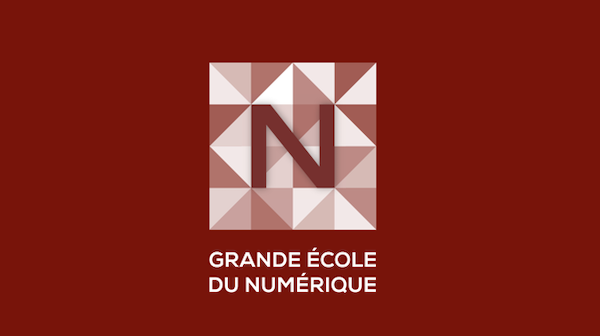The Grande École du Numérique is launching a new call for accreditation.
Between now and 2019, the training courses approved during this call for projects will train 5,000 people nationwide with little or no qualifications (baccalaureate level or below) who are looking for work.
A budget of nearly 37 million euros has been allocated to this third call for certification, as part of the skills investment plan managed by the Ministry of Labor.
The Grande Ecole du Numérique aims, as part of the 2018 call for accreditation, to welcome among its learners:
- 80% of people trained to baccalaureate level or below are looking for work
- 30% minimum of women
- 30% of training courses located in priority neighbourhoods of the City policy
- A non-renewable seed grant for training, which may not exceed 80% of the training funding.
- Subsidiary financial assistance for learners who have no other financial support.
- The training must train for the digital professions.
- The training must not have already been accredited during the first two calls for projects.
- The training must train a minimum of 10 low-skilled or unskilled job seekers per training session.
- Training must guarantee free access to training for people with few or no qualifications who are looking for work.
- The financing of the State and its operators cannot exceed 80% of the financing of the training.
Launched in 2015 by the government, the Grande Ecole du Numérique is a network of more than 400 training courses in digital professions. The Grande Ecole du Numérique promotes inclusion and meets the needs of recruiters for digital skills.
The Grande École du Numérique aims to respond to the need for jobs in the digital sector, to promote the social and professional integration of young people - in particular those who are not in training and do not have a job - and more broadly of all those undergoing retraining to develop and structure a range of training courses throughout the country: "Les fabriques du numérique
The Grande Ecole du Numérique programs are open to all, without academic, economic or social distinction. By training for tomorrow's professions, everyone must be able to find their place in the digital society.
Références :





